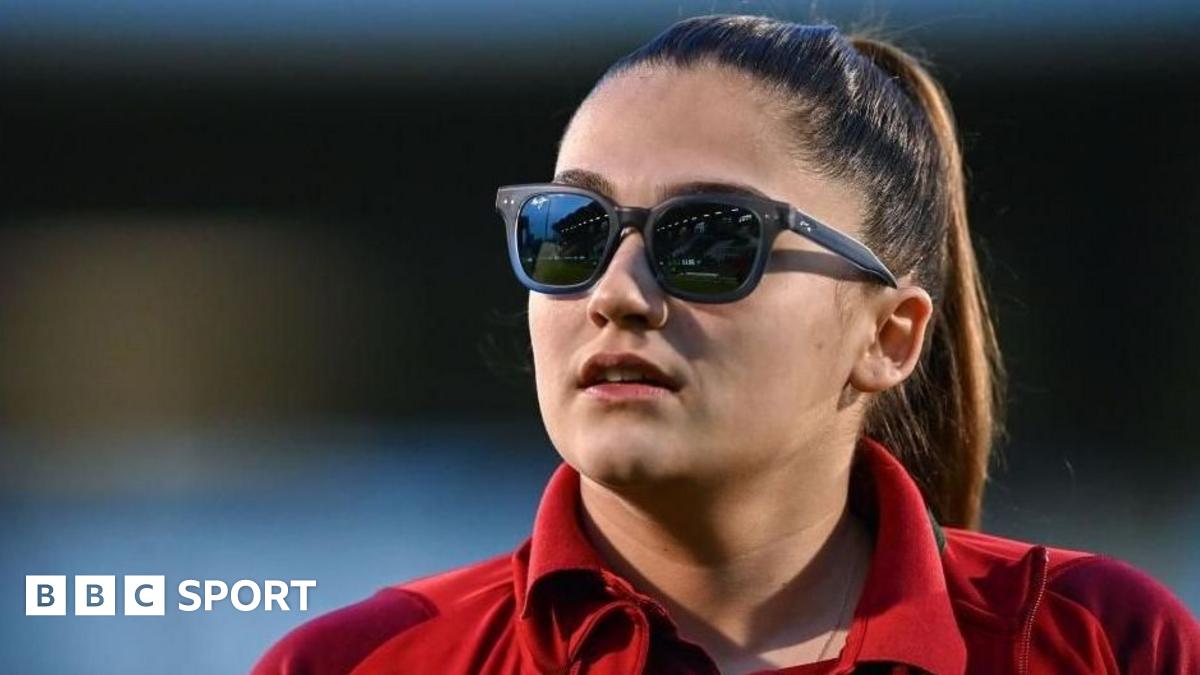'I love my fans, but also dread meeting them' - life as an autistic elite footballer

Wales Goalkeeper Safia Middleton-Patel: Embracing Autism on the Road to Euro 2025
Safia Middleton-Patel, the 20-year-old Manchester United goalkeeper, is preparing to represent Wales at Euro 2025, a historic achievement for the nation. Beyond her prowess on the pitch, Middleton-Patel is also navigating the challenges and unique strengths that come with being an elite athlete with Autism Spectrum Disorder (ASD). Her story highlights the complexities of neurodiversity in professional sport and the support systems crucial for athletes to thrive.
Visualising Victory: A Unique Approach to the Game
Middleton-Patel's journey to the Euros has been marked by exceptional performances, including a player-of-the-match display against Sweden in April. She credits her success, in part, to her unique way of processing the game. "I kind of visualise the next pass as like the perfect Lego brick I'm missing in my set," she explains. "I'm searching for it and I'm getting in the right positions to find it." This ability to hyperfocus, a common trait among individuals with ASD, allows her to tune out distractions and concentrate intensely on the task at hand.
Dr. Sarah Kingston, a sports psychologist specializing in neurodiversity, notes that hyperfocus can be a significant advantage for athletes. "Individuals with ASD often possess an exceptional ability to concentrate on specific details and maintain focus for extended periods," Kingston explains. "This can translate into superior performance in sports that require precision, strategic thinking, and unwavering attention."
Navigating Sensory Overload and Social Interactions
While hyperfocus can be an asset, Middleton-Patel also faces challenges related to sensory overload and social interactions. The noise and intensity of a stadium crowd, for instance, can be overwhelming. "If I'm sat on a bench or I'm sat in the crowd… I hear all the fans, I hear all the cheers, I hear all the clapping," she says. This sensory sensitivity can lead to stimming behaviours, such as rocking or finger drumming, as a way to regulate her emotions and prevent feeling overwhelmed.
These challenges extend beyond the stadium. Middleton-Patel describes the difficulties she faces in everyday situations, such as shopping or interacting with strangers. The need to maintain a "front" in social situations can be exhausting, and misunderstandings can be emotionally draining. This is why she sometimes dreads meeting fans, fearing misinterpretations of her unintentional facial expressions or behaviours. "I love my fans, but I also dread meeting them because of 'the front' I fear I have to put on," she admits.
The Importance of Understanding and Acceptance
Middleton-Patel's experiences highlight the importance of understanding and acceptance of neurodiversity within sports. She recounts past experiences where her behaviours, stemming from her autism, were misinterpreted as rudeness or a lack of focus. "When you're having catch-ups with the coaches and sitting there and I'm not looking them in the eye… they go, 'what are you looking at? Are you looking there? Look at me'."
Historical context reveals a gradual shift in awareness and understanding of neurodiversity in sports. In the past, athletes with conditions like ASD may have been overlooked or misunderstood, hindering their opportunities. However, in recent years, there has been a growing movement to promote inclusion and provide tailored support for neurodivergent athletes.
Manchester United's Support System
Middleton-Patel credits Manchester United with providing a supportive and understanding environment. "They are very, very understanding. And if they don't understand, they will always pull me for a chat," she says. This open communication and willingness to learn have been crucial in helping her navigate the challenges of being a professional athlete with autism.
Furthermore, her close relationships with teammates like Jess Simpson, Leah Galton, and Rachel Williams, whom she affectionately calls her "Lego Club," provide invaluable emotional support. "They understand me. They don't want me to fake anything, they just want me to be me."
Looking Ahead to Euro 2025
As Middleton-Patel prepares for Euro 2025, she hopes her story will raise awareness and promote greater understanding of autism. "People always go 'you don't look autistic'. But since when has autism had a look?" she says. By sharing her experiences, she aims to challenge stereotypes and encourage a more inclusive and accepting environment for neurodivergent individuals in all aspects of life.
Wales' participation in Euro 2025 is a significant moment for the nation, and Middleton-Patel's presence on the team adds another layer of inspiration. Her journey demonstrates that with the right support and understanding, individuals with autism can achieve their dreams and excel in their chosen fields. Her story serves as a powerful reminder that embracing neurodiversity can enrich not only sports but society as a whole.
Originally sourced from: BBC Sport Football
